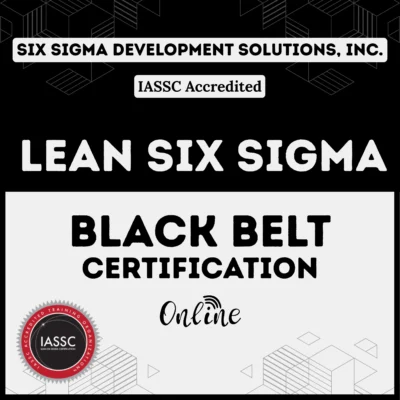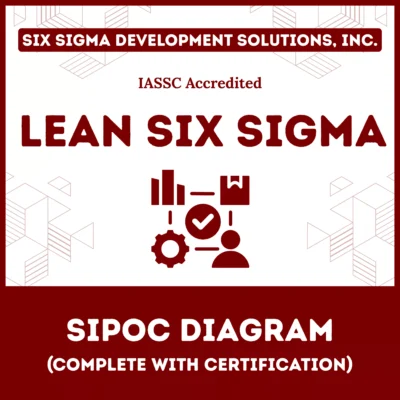A strong corporate vision is the compass that guides a company towards meaningful, sustainable success. Whether launching a startup or leading a global enterprise, developing a compelling vision statement helps align stakeholders, drive strategy, and inspire extraordinary achievement.
This in-depth guide explores what a vision statement is, how to craft one, the difference between mission and vision, practical examples, and actionable steps for building a business vision that lasts.
The definition of corporate vision centers on a company’s aspirational long-term goals—its picture of future success. Often formalized as a vision statement, it reflects what the organization wants to become and why it matters. The vision guides planning, unites teams, and motivates both employees and customers to strive for more.
Table of contents
What is a Corporate Vision?
A corporate vision is a concise, forward-looking statement that defines a company’s long-term aspirations and purpose. It answers the question, “Where do we want to be in the future?” Unlike a mission statement, which focuses on the present—what a company does and for whom—a vision statement paints a vivid picture of the future. It’s the dream that keeps everyone motivated, from employees to investors.
For example, consider Patagonia’s vision statement: “We’re in business to save our home planet.” This bold declaration not only reflects the company’s environmental ethos but also inspires action and loyalty. A company vision provides clarity, fosters alignment, and serves as a foundation for strategic decision-making. It’s not about what you’re doing today but about the legacy you aim to create tomorrow.
Public, Onsite, Virtual, and Online Six Sigma Certification Training!
- We are accredited by the IASSC.
- Live Public Training at 52 Sites.
- Live Virtual Training.
- Onsite Training (at your organization).
- Interactive Online (self-paced) training,
Importance of a Corporate Vision
Why does a business vision matter? Think of it as the heartbeat of an organization. A strong vision statement does more than decorate a company website—it shapes culture, drives innovation, and attracts talent. Here’s why corporate visions are critical:
- Guides Decision-Making: A clear vision ensures every choice aligns with long-term goals, from product development to hiring.
- Inspires Employees: A compelling company vision statement motivates teams to work toward a shared purpose, boosting morale and productivity.
- Attracts Stakeholders: Customers, investors, and partners are drawn to companies with a bold, meaningful vision.
- Differentiates Your Brand: In a crowded market, a unique brand vision sets you apart, showcasing what makes your business special.
Without a vision statement, companies risk drifting aimlessly, making it harder to stay focused in a competitive landscape.
Also Read: Gap Analysis
Vision Statement vs. Mission Statement: What’s the Difference?
The terms vision statement and mission statement are often used interchangeably, but they serve distinct purposes. Let’s break it down:
- Vision Statement: Focuses on the future, outlining where the company aspires to go. It’s aspirational and big-picture. Example: “To be the world’s most innovative technology company.”
- Mission Statement: Describes the present, detailing what the company does, who it serves, and how it operates. Example: “We design user-friendly software to empower small businesses.”
For instance, Tesla’s vision statement—“To create the most compelling car company of the 21st century by driving the world’s transition to electric vehicles”—looks to the future, while its mission—“To accelerate the world’s transition to sustainable energy”—focuses on current actions. Together, mission and vision statements create a roadmap: the mission defines the “how,” and the vision defines the “where.”
Difference Between Vision and Mission Statement
Understanding the distinction between vision and mission statements is key to strategic clarity. While closely related, they serve different purposes:
| Element | Vision Statement | Mission Statement |
| Focus | Future aspiration | Present purpose and business activity |
| Time horizon | 5-10 years (or longer) | Day-to-day, ongoing |
| Goal | Inspirational, describes what the company hopes to be | Actionable, outlines what the company does for whom |
| Example | “To accelerate the world’s transition to renewable energy.” – Tesla | “To organize the world’s information and make it universally accessible.” – Google |
While a mission statement describes what a business does and how it serves stakeholders today, a vision statement sets a future destination, rallying the organization around shared dreams.
How to Write a Vision Statement?
Crafting a company vision statement is both an art and a science. It requires creativity, clarity, and a deep understanding of your organization’s purpose. Follow these steps to create a vision statement that resonates:
- Reflect on Your Purpose: Ask, “Why does our company exist?” and “What impact do we want to make in 5, 10, or 20 years?” Consider your values and long-term goals.
- Keep It Concise: A vision statement should be short—ideally one or two sentences. Avoid jargon and focus on clarity.
- Make It Inspirational: Use vivid language to ignite passion. A business vision statement should feel like a rallying cry.
- Focus on the Future: Highlight where you’re headed, not where you are now. Think big but stay realistic.
- Involve Your Team: Gather input from employees and stakeholders to ensure the vision reflects shared aspirations.
- Test for Alignment: Ensure the vision aligns with your brand, culture, and industry trends.
For example, a startup might craft this vision statement: “To revolutionize education by making learning accessible to every child worldwide.” This statement is clear, inspiring, and future-focused.
Also Read: Hoshin Kanri Explained: Five Phases of Hoshin Planning
Vision Statement Examples to Inspire You
To spark your creativity, here are some vision statement examples from leading companies:
- Microsoft: “To empower every person and every organization on the planet to achieve more.” This vision is broad, inclusive, and forward-thinking, reflecting Microsoft’s global impact.
- Nike: “To bring inspiration and innovation to every athlete* in the world (*if you have a body, you are an athlete).” Nike’s vision is inclusive and motivational, redefining who an athlete is.
- IKEA: “To create a better everyday life for the many people.” Simple yet powerful, this vision emphasizes accessibility and improvement.
- Google: “To organize the world’s information and make it universally accessible and useful.” Google’s vision is ambitious, reflecting its role in shaping the digital age.
These examples of vision statements show how companies use concise, impactful language to articulate their dreams. Notice how each is unique, reflecting the company’s core values and aspirations.
Personal Vision Statements
While corporate visions guide organizations, personal vision statements help individuals define their own paths. A personal vision statement outlines your long-term goals and values, acting as a compass for career and life decisions. For example:
- “To inspire others through storytelling and creative expression.”
- “To lead with empathy, fostering inclusive communities wherever I go.”
Creating a personal vision statement follows similar principles to corporate ones: reflect on your purpose, keep it concise, and make it inspiring. Aligning your personal vision with your company’s can create a powerful synergy, boosting motivation and alignment.
Best Practices for Crafting a Corporate Vision
To ensure your vision statement resonates, follow these best practices:
- Be Authentic: Your vision should reflect your company’s true values, not just what sounds good.
- Stay Timeless: Avoid trends or buzzwords that may date your vision. Aim for something enduring.
- Involve Stakeholders: Engage employees, customers, and partners to create a shared vision.
- Revisit Regularly: As your business evolves, revisit your company vision to ensure it remains relevant.
- Communicate Widely: Share your vision across your organization, website, and marketing materials to build alignment.
For example, a vision statement template might look like: “To [aspirational goal] by [unique approach or value] for [target audience or impact].” Plug in your specifics to create a tailored statement.
Real-World Applications of Corporate Vision
A business vision isn’t just a statement—it’s a tool that shapes every aspect of an organization. Here’s how corporate visions drive success:
- Strategic Planning: A vision guides long-term strategies, from product development to market expansion.
- Employee Engagement: A compelling company vision statement fosters a sense of purpose, reducing turnover and boosting productivity.
- Customer Loyalty: Brands like Patagonia use their vision to connect with customers who share their values, creating loyal advocates.
- Innovation: A bold vision, like Tesla’s, inspires teams to push boundaries and develop groundbreaking solutions.
For instance, a tech startup might use its vision statement for business—“To empower communities through accessible AI”—to guide decisions about product features, partnerships, and hiring.
Challenges of Crafting a Corporate Vision
While powerful, creating a corporate vision comes with challenges:
- Vagueness: Generic statements like “To be the best” lack impact and fail to inspire.
- Misalignment: If the vision doesn’t reflect the company’s culture or goals, it can confuse employees and stakeholders.
- Overcomplication: Lengthy or jargon-filled statements are hard to remember and dilute impact.
- Lack of Buy-In: Without team input, the vision may feel disconnected, reducing engagement.
To overcome these, focus on clarity, authenticity, and collaboration when crafting your business vision statement.
Vision and Mission Statement Examples in Action
To illustrate how mission and vision statements work together, let’s look at a fictional company, GreenWave Solutions, a renewable energy startup:
- Vision Statement: “To power a sustainable future with clean energy for all.”
- Mission Statement: “We design affordable solar solutions to reduce carbon footprints for businesses and communities.”
The vision sets a bold, future-focused goal, while the mission outlines the company’s current actions. Together, they create a cohesive narrative that guides GreenWave’s strategy and culture.
FAQs About Corporate Vision
What is a corporate vision statement?
A corporate vision statement is a concise declaration of a company’s long-term aspirations, outlining where it aims to be in the future. It inspires and guides strategic decisions.
How does a vision statement differ from a mission statement?
A vision statement focuses on future goals, while a mission statement describes what a company does now, who it serves, and how it operates.
What are some examples of strong vision statements?
Examples include Microsoft’s “To empower every person and organization to achieve more” and Patagonia’s “We’re in business to save our home planet.” These are clear, inspiring, and future-focused.
How do I write a vision statement for my business?
Reflect on your purpose, keep it concise and inspirational, focus on the future, involve your team, and ensure alignment with your brand values.
Why is a corporate vision important?
A corporate vision guides decision-making, inspires employees, attracts stakeholders, and differentiates your brand, providing a clear path for long-term success.
Final Words
A corporate vision is more than a statement—it’s a beacon that lights the way for your business. By defining where you want to go, a vision statement inspires teams, aligns strategies, and builds a legacy that resonates with customers and stakeholders. Whether you’re crafting a business vision statement for a startup or refining one for an established company, the process requires clarity, authenticity, and inspiration.
With the right company vision, you can navigate challenges, seize opportunities, and create a future that reflects your highest aspirations.



















